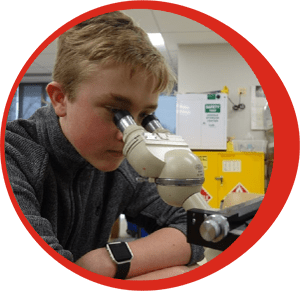Early Signs of Giftedness

Early Signs Your Child May Be Gifted
All children bring their gifts to the world, but it can be challenging for parents to identify if their child is a gifted learner at a young age.
There isn’t a hard and fast “gifted” checklist (although the National Association for Gifted Children has defined giftedness in broad terms), but there are behaviors that can point to giftedness in the early years of a child’s development.
Dr. Vicki Phelps, gifted education expert and Quest Academy’s Head of School, shares some of the more common traits and lesser-known indicators of gifted students.
Parents may initially see some of these behaviors as “normal,” or simply “advanced,” but Dr. Phelps says there are subtle differences when it comes to how these traits manifest in gifted children at ages two, three, and four.
Spotting the Spark
Three traditional signs of giftedness
1. An insatiable curiosity. Gifted children will not only ask “why,” they will insist on continuing the conversation by asking multiple follow up questions. This drive to always want to know more is because they are trying to understand the intricacies of how things work, the implications for the world around them, and how big ideas connect and intersect.
2. Advanced memory and recall capabilities. A recent study published in Acta Psychologica found that gifted learners have higher working memory capabilities and faster problem-solving speeds. This trait manifests itself when a child needs only one or two repetitions to understand a concept or pick up a skill.
Dr. Phelps says, “If you see that your child hears something once or twice and then they quickly secure that skill, you know they are ready to take in new information and that their mind is processing and holding on to things at an advanced level.”
3. Using items in innovative and creative ways. Dr. Phelps calls it “inventive thinking” or divergent thinking where a gifted child’s imagination and creativity allow them to extend typical items to different uses. For example, a gifted learner may take a kitchen whisk and use it as a microphone or use it to curl their hair. Or they may try to operationalize blocks into a catapult.
Three unexpected signs of giftedness
1. A strong desire to learn about one topic, usually an obscure topic. Dr. Phelps explains that many children have a fascination with subjects like dinosaurs and princesses. But gifted kids will often take an intense interest in a subject that isn’t very well known and will bring conversations back to how ideas or information relate to their chosen subject.
Even when playing dress up, gifted children may seek to fully embody the character they are playing by using the correct vocabulary and asking more detailed questions during playtime. Dr. Phelps says, “Gifted children think as disciplinarians. They will take the mindset of pretending to be, say, a doctor, and you will see them incorporate the right medical terminology and give medical advice as someone would do when working in that field.”
2. Is gifted in one or two academic areas…but may struggle in others. “You may have a child who is profoundly gifted in math who may also struggle with learning how to read. You may have a child who has been reading and verbal since the age of one or two, but they are really struggling with numbers. It’s important for parents of young, gifted children to understand that giftedness does not mean giftedness in everything,” Dr. Phelps advises.
3. Easily frustrated or over stimulated. Dr. Phelps cautions, “Being gifted does not mean that life is easier for a gifted child. Frustration happens to everybody, but gifted learners often will become frustrated because they have a drive to demonstrate advanced concepts and an inability to do that yet. You may see your child struggle with frustration because they can read at a high level, but they don’t have the fine motor skills to write a book yet.”
Gifted learners’ brains are not only processing cognitive information more quickly, but they are also taking in visual, auditory, and olfactory information at a faster rate. “Many of our gifted learners at their youngest ages were very sensitive to different smells, sounds, textures, colors, and visual representations,” explains Dr. Phelps. “Being gifted means processing a lot at one time, and when a child is young, it’s hard to regulate all the emotions that come with that.”
